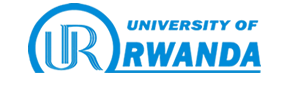Keywords
Conflict, Devolution, Land-use, Preventive, Risk
Content Language
EN
Abstract
In an era where globalization is producing homogeneity, ethnic differences continue to produce some of the most violent conflicts. Indeed, the post-cold war period was marked by a decline in interstate contestations. However, violent intra-state contestations have been on the upsurge. These are projected to further rise in the next two decades. Population explosion, urbanization, deteriorating land quality and adverse effects of climate change are set to catalyse these contestations. The African Continent is set to bear the brunt of these contestations. Rooted in a long historical quest for land rights spanning over 100 years, the carnage violent inter-communal conflicts epitomized state failure to secure sustainable peace over land distribution in Mt. Elgon Region. Because of its ability to address this “distance decay” that led to the conflict, devolution was perceived as a pathway in addressing the historical land question in Mt. Elgon region. However, slightly over a decade since the implementation of devolution, sustainable peace in the region remains elusive. This paper sought to interrogate the role of devolution as a preventive risk factor in the management of land-use conflicts in Mt. Elgon Region. Drawing from primary data collected using questionnaires from 400 household respondents, 2 key informant interviews with community elders, 2 focus group discussion with male and female victims of conflicts. The study findings reveal that devolution has been passive in addressing the historical land question and has, in fact, exacerbated the majority-minority disparity concerning development in the area. To foster a peaceful, just, and inclusive Mt. Elgon Region, the study recommends that addressing homegrown extremism and effectively managing land-use conflicts requires comprehensive and inclusive measures that go beyond devolution alone in addition to first, addressing the underlying historical land question. The paper adds to the sustainable development agendas 1,2,3,10 and 16, contributes to policy on streamlining devolved systems and aligns to the U7+ call for Universities to deepen role in peace and research.
Recommended Citation
Amakanji, Graham Oluteyo; Okoth, Pontian G.; and Were, Edmond Maloba
(2023)
"Leveraging Devolution as a Pathway to the Management of Homegrown Extremism over Intractable Land-use Conflicts in Chepyuk Settlement Schemes, Kenya,"
Journal of African Conflicts and Peace Studies:
Vol. 5:
Iss.
2, .
Available at:
https://digitalcommons.usf.edu/jacaps/vol5/iss2/4
Included in
Development Studies Commons, Race, Ethnicity and Post-Colonial Studies Commons, Social Justice Commons


